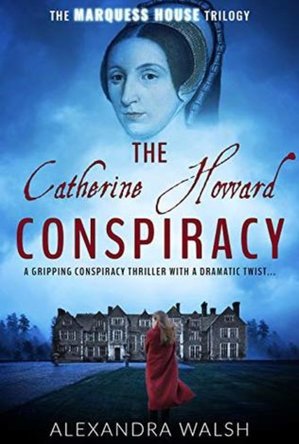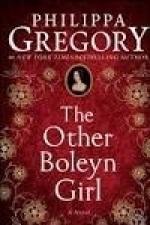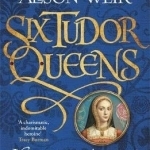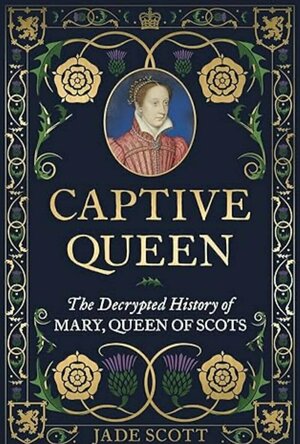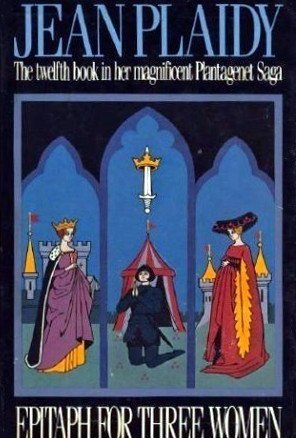Search
Search results
ClareR (6081 KP) rated The Catherine Howard Conspiracy (The Marquess House Trilogy #1) in Books
Apr 13, 2019
This is set in two timelines: modern day and the Tudor Court. Dr Perdita Rivers and her twin sister, Piper, have been left an enormous bequest by their maternal grandmother. Perdita’s grandmother was a renowned Tudor historian, and had cut off all ties with her granddaughters after the death of their mother. So this is a bit of a shock!
The other timeline follows Catherine Howard in the lead up to her marriage to Henry VIII, and those fateful months that followed it.
I really do like historical novels, and the Tudor period has always particularly fascinated me. I loved all of the historical detail (and I know a lot of it is just conjecture, but it’s fun to imagine!), and Perdie’s research was very interesting too. I’d love a library like hers!
I’m very much looking forward to reading the second instalment as the ending was most intriguing!!
The other timeline follows Catherine Howard in the lead up to her marriage to Henry VIII, and those fateful months that followed it.
I really do like historical novels, and the Tudor period has always particularly fascinated me. I loved all of the historical detail (and I know a lot of it is just conjecture, but it’s fun to imagine!), and Perdie’s research was very interesting too. I’d love a library like hers!
I’m very much looking forward to reading the second instalment as the ending was most intriguing!!
Hayley Hornibrook (48 KP) rated Innocent Traitor in Books
Jul 6, 2018
Alison is my favourite historical author - her characters are as close to their true stories as fiction can possibly allow them to be. She can get inside the time period and their heads to take the reader on an emotional and exciting journey. It is the plight of Tudor women she does this with best; and the two books about Anne Boleyn and Lady Jane Grey are my favourites. I have loved devouring her books - easy reads and original twists.
Deborah (162 KP) rated Forensic Shakespeare in Books
Dec 21, 2018
Forensic doesn't mean this is the Shakespeare equivalent of Silent Witness - this is a book looking at a group of Shakespeare's plays (and one poem), of which several are often considered 'problem' plays and the use of rhetoric within them. Skinner argues that this is deliberate and relates to a re-emerging interest in the Roman Rhetoricians in the Tudor period. The book is based on a series of lectures given by Skinner, so although as a casual reader I found it interesting, it was also hard work at times, particularly the opening chapters.
ClareR (6081 KP) rated The Other Boleyn Girl in Books
Jun 24, 2019
I read this quite a long time ago, but I have to say that I do read all of Philippa Gregory’s books because they’re just really good stories. I do have a bit of a thing about the Tudor period, and I’ve read a fair bit of both fiction and non-fiction around the period. I’m aware that this (and her others) may be heavily fictionalised, but part of reading is entertainment, no? But I do like how I feel immersed in these stories.
And who knew that Anne Boleyn’s sister had an affair with Henry VIII before Anne married him (well, when the book came out, not many people seemed to know - unless they were very heavily into their history!)? And honestly, I wouldn’t be overly surprised if a lot of goes on in the book actually happened!
And who knew that Anne Boleyn’s sister had an affair with Henry VIII before Anne married him (well, when the book came out, not many people seemed to know - unless they were very heavily into their history!)? And honestly, I wouldn’t be overly surprised if a lot of goes on in the book actually happened!
Deborah (162 KP) rated Queen of Silks in Books
Dec 21, 2018
Overall I found this to be a well written novel with evidently a good deal of research into the silk industry. However, the depiction of real historical events became closely woven (no pun intended!) into the plot, but this for me was a weakness.
In some places the chronology just wasn't right. In other places the internal logic was weak. For example, over the instance of the execution of Hastings, in novels which cover this event the author needs to come up with their own explanation of this as the truth is covered over by time and Tudor propoganda. Bennett makes little or no explanation for the event and has 'Dickon' acting remarkably out of character in this one scene - and I mean that following her depiction in the book and not from my personal opinion. Additionally, for someone who has had a liaison with Dickon over a period of years, Isabel, the protagonist, shows remarkably little understanding of his character and I found her at times irritating and unsympathetic.
I also felt that in the wrapping up of the story, Elizabeth of York is shown to act in a ruthless way which doesn't match at all with what we know of her in her time as the first Tudor queen. Again, failures of internal and external logic for me.
To conclude, a well-written book, and I am not adverse by reading more from this author, but for me the historical event aspect didn't hang together well enough and was at times frustrating. I think it would have been a better novel if it left the larger political landscape well alone.
In some places the chronology just wasn't right. In other places the internal logic was weak. For example, over the instance of the execution of Hastings, in novels which cover this event the author needs to come up with their own explanation of this as the truth is covered over by time and Tudor propoganda. Bennett makes little or no explanation for the event and has 'Dickon' acting remarkably out of character in this one scene - and I mean that following her depiction in the book and not from my personal opinion. Additionally, for someone who has had a liaison with Dickon over a period of years, Isabel, the protagonist, shows remarkably little understanding of his character and I found her at times irritating and unsympathetic.
I also felt that in the wrapping up of the story, Elizabeth of York is shown to act in a ruthless way which doesn't match at all with what we know of her in her time as the first Tudor queen. Again, failures of internal and external logic for me.
To conclude, a well-written book, and I am not adverse by reading more from this author, but for me the historical event aspect didn't hang together well enough and was at times frustrating. I think it would have been a better novel if it left the larger political landscape well alone.
Lyndsey Gollogly (2893 KP) rated Katherine of Aragon, the True Queen in Books
Sep 6, 2021
144 of 250
Book
Katherine of Aragon the true Queen ( Six Tudor Wives)
By Alison Weir
Once read a review will be written via Smashbomb and link posted in comments
A Spanish princess. Raised to be modest, obedient and devout. Destined to be an English Queen.
Six weeks from home across treacherous seas, everything is different: the language, the food, the weather. And for her there is no comfort in any of it. At sixteen-years-old, Catalina is alone among strangers.
She misses her mother. She mourns her lost brother.
She cannot trust even those assigned to her protection.
KATHERINE OF ARAGON. The first of Henry's Queens. Her story.
History tells us how she died. This captivating novel shows us how she lived.
It took me a bit longer than normal to finish this book I really enjoyed it but came away feel so sad for Katherine. I’m fascinated with this period of history and she is one queen who always hits the heart when I read her story. This is one of the best ones I’ve read so far and knowing Alison kept as close as possible to history made me even more sad. Something about the princesses of Wales they always get dealt a hard blow by the monarchy. Overall it was a beautifully written version of her. Looking forward to reading Anne’s next.
Book
Katherine of Aragon the true Queen ( Six Tudor Wives)
By Alison Weir
Once read a review will be written via Smashbomb and link posted in comments
A Spanish princess. Raised to be modest, obedient and devout. Destined to be an English Queen.
Six weeks from home across treacherous seas, everything is different: the language, the food, the weather. And for her there is no comfort in any of it. At sixteen-years-old, Catalina is alone among strangers.
She misses her mother. She mourns her lost brother.
She cannot trust even those assigned to her protection.
KATHERINE OF ARAGON. The first of Henry's Queens. Her story.
History tells us how she died. This captivating novel shows us how she lived.
It took me a bit longer than normal to finish this book I really enjoyed it but came away feel so sad for Katherine. I’m fascinated with this period of history and she is one queen who always hits the heart when I read her story. This is one of the best ones I’ve read so far and knowing Alison kept as close as possible to history made me even more sad. Something about the princesses of Wales they always get dealt a hard blow by the monarchy. Overall it was a beautifully written version of her. Looking forward to reading Anne’s next.
Lyndsey Gollogly (2893 KP) rated Jane Seymour: The Haunted Queen in Books
Nov 10, 2021
186 of 250
Book
Jane Seymour: The Haunted Queen ( Six Tudor Queens book 3)
By Alison Weir
Once read a review will be written via Smashbomb and link posted in comments
THE WOMAN HAUNTED BY THE FATE OF HER PREDECESSOR.
Eleven days after the death of Anne Boleyn, Jane is dressing for her wedding to the King.
She has witnessed at first hand how courtly play can quickly turn to danger and knows she must bear a son . . . or face ruin.
This new Queen must therefore step out from the shadows cast by Katherine and Anne. In doing so, can she expose a gentler side to the brutal King?
I went into this not knowing very little of Jane Seymour and I found the book enchanting. She was a pure soul and in Alisons words she was portrayed so well. You felt the love she had for Katherine and the love she had for Henry and of course the shared dislike for Anne! I actually cried reading the last two chapters it was a very unjust end for a woman who had just become a mother to a son that was craved so much! I absolutely love this period and I find Alisons books just a brilliant outlook on the events. After i read Anne Boleyn I was just angry with the ending of this I’m saddened. Highly recommend such a beautiful tale of a short lived queen.
Book
Jane Seymour: The Haunted Queen ( Six Tudor Queens book 3)
By Alison Weir
Once read a review will be written via Smashbomb and link posted in comments
THE WOMAN HAUNTED BY THE FATE OF HER PREDECESSOR.
Eleven days after the death of Anne Boleyn, Jane is dressing for her wedding to the King.
She has witnessed at first hand how courtly play can quickly turn to danger and knows she must bear a son . . . or face ruin.
This new Queen must therefore step out from the shadows cast by Katherine and Anne. In doing so, can she expose a gentler side to the brutal King?
I went into this not knowing very little of Jane Seymour and I found the book enchanting. She was a pure soul and in Alisons words she was portrayed so well. You felt the love she had for Katherine and the love she had for Henry and of course the shared dislike for Anne! I actually cried reading the last two chapters it was a very unjust end for a woman who had just become a mother to a son that was craved so much! I absolutely love this period and I find Alisons books just a brilliant outlook on the events. After i read Anne Boleyn I was just angry with the ending of this I’m saddened. Highly recommend such a beautiful tale of a short lived queen.
ClareR (6081 KP) rated Captive Queen: The Decrypted History of Mary Queen of Scots in Books
Jun 14, 2025
Tudor England has always been a favourite subject of mine, and then on to the Elizabethan period as well. It’s always interested me how Elizabeth I treated her cousin, Mary Queen of Scots, especially after I visited Carlisle Castle and saw some of the displays that explained her captivity there. It may have only been a few weeks out of the 19 years that she was held captive, and I was curious about the rest of those years.
Captive Queen explains a lot of Mary’s life and also tells of how she got to the point of her imprisonment. So much information was gleaned from the encrypted letters that she sent to, and received from, her supporters. When they were decrypted, after their discovery in a French archive, they answered a lot of questions.
Jade Scott uses this information to paint a really interesting picture of Mary’s captivity, and just how involved she was in the various plots to release her and put her on the English throne. I mean, who can blame her?! She was imprisoned in some awful places - regardless of the fact that she was in castles or stately homes.
I rather enjoyed the little fictional chapter headers. They made it feel more personal, and ideal for people like me who don’t always enjoy dry, academic historical writing. This is absolutely not that - I whizzed through this book, thoroughly enjoying it.
So, if you enjoy history and want to find out more about Mary, Queen of Scots, you may well enjoy this too.
Captive Queen explains a lot of Mary’s life and also tells of how she got to the point of her imprisonment. So much information was gleaned from the encrypted letters that she sent to, and received from, her supporters. When they were decrypted, after their discovery in a French archive, they answered a lot of questions.
Jade Scott uses this information to paint a really interesting picture of Mary’s captivity, and just how involved she was in the various plots to release her and put her on the English throne. I mean, who can blame her?! She was imprisoned in some awful places - regardless of the fact that she was in castles or stately homes.
I rather enjoyed the little fictional chapter headers. They made it feel more personal, and ideal for people like me who don’t always enjoy dry, academic historical writing. This is absolutely not that - I whizzed through this book, thoroughly enjoying it.
So, if you enjoy history and want to find out more about Mary, Queen of Scots, you may well enjoy this too.
graveyardgremlin (7194 KP) rated Epitaph for Three Women (Plantagenet Saga, #12) in Books
Feb 15, 2019
<b>2.5 stars
Epitaph for Three Women</b> turned out to be far less about these three women than I was led to believe by the book's description. Broken into three parts titled Katherine of Valois, Joan of Arc, and Eleanor of Gloucester, only Joan, or Jeannette rather, has an actual story that follows her path in life. The other two are background players to the politics going on at the time, especially those concerning the Dukes of Bedford and Gloucester and England's fight for France. Whenever Katherine enters the picture, it's all light, airy, and extremely romanticized, especially in regards to Owen Tudor. For most of the book they live a totally idyllic life that doesn't feel realistic in the least. Eleanor Cobham is portrayed as a scheming, crown-hungry social climber who proves far too trusting of witches and soothsayers. Isabeau of Bavaria fares even worse and I got tired of the constant references to how whorish she was. Since this was written, historians have looked into the accuracy of her reputation and dismissed certain facets as untrue. Still, this isn't a completely bad book. Putting aside Katherine's storyline where she only made cameo appearances anyway, I enjoyed the first part the most. Not knowing much about this period, the history was fascinating. The second featuring Jeannette was my least favorite, but I lay full blame at my feet because I have just never cared for Joan of Arc's story, so found most of this part boring. While there was some interesting information in the book, I didn't love the book but it's an easy introduction to this particular time.
For more information on Eleanor Cobham, I recommend Susan Higginbotham's guest <a href="http://madameguillotine.org.uk/2012/09/03/the-duchess-downfall-eleanor-cobham/">post</a>; at Madame Guillotine.
Originally Reviewed: October 17, 2012
Received: Local Library
Epitaph for Three Women</b> turned out to be far less about these three women than I was led to believe by the book's description. Broken into three parts titled Katherine of Valois, Joan of Arc, and Eleanor of Gloucester, only Joan, or Jeannette rather, has an actual story that follows her path in life. The other two are background players to the politics going on at the time, especially those concerning the Dukes of Bedford and Gloucester and England's fight for France. Whenever Katherine enters the picture, it's all light, airy, and extremely romanticized, especially in regards to Owen Tudor. For most of the book they live a totally idyllic life that doesn't feel realistic in the least. Eleanor Cobham is portrayed as a scheming, crown-hungry social climber who proves far too trusting of witches and soothsayers. Isabeau of Bavaria fares even worse and I got tired of the constant references to how whorish she was. Since this was written, historians have looked into the accuracy of her reputation and dismissed certain facets as untrue. Still, this isn't a completely bad book. Putting aside Katherine's storyline where she only made cameo appearances anyway, I enjoyed the first part the most. Not knowing much about this period, the history was fascinating. The second featuring Jeannette was my least favorite, but I lay full blame at my feet because I have just never cared for Joan of Arc's story, so found most of this part boring. While there was some interesting information in the book, I didn't love the book but it's an easy introduction to this particular time.
For more information on Eleanor Cobham, I recommend Susan Higginbotham's guest <a href="http://madameguillotine.org.uk/2012/09/03/the-duchess-downfall-eleanor-cobham/">post</a>; at Madame Guillotine.
Originally Reviewed: October 17, 2012
Received: Local Library
Deborah (162 KP) rated The Queen's Confidante in Books
Dec 21, 2018
The book has three mysteries at the heart - was Arthur Tudor really murdered (I confess this is a new theory to me and not sure how credible this is), what happened to the so-called Princes in the Tower and what became of Lord Lovell after the Battle of Stoke. Personally, I think the latter is done a great disservice here, based on the historical knowns of his character. Even so, what happens and with the hero and heroine's consent is pretty horrific - yes, I know the historical basis for this, but it doesn't do much good for liking the supposed protagonists! Also the rather melodramatic language as the book nears it's conclusion - monster, beast, devil - it just goes a bit over the top.
I could explain a bit more about why I wasn't keen on the book, but it would be difficult to do without spoilers, so I suppose I will leave that there. I will just say that I find it hard to credit that when Elizabeth Woodville came out of sanctuary in 1484 she didn't know what had happened to her sons and therefore one would assume that Elizabeth of York would also have known - and she was happy enough to be honoured at her uncle's court that Yuletide. Having the Elizabeth of this book rail against Yorkists when she came from what seemed a close family does seem to me to be somewhat absurd.
There are, also, a number of errors which could and should have been picked up. Another reviewer has already mentioned the note which is shown to two other people on one page and on the following page is apparently a secret! There are also TWO erroneous mentions of Richard duke of York, when the context is reasonably clear the person actually referred to is York's son, Richard Duke of Gloucester - elementary mistake that should not have been made!
Perhaps I have read too many non-fiction books about the period and have formed my own strong opinions to enjoy this book as much as some other reviewers. If it is going to be your 'thing' I can only give you my opinion and leave it to yourselves to determine.
I could explain a bit more about why I wasn't keen on the book, but it would be difficult to do without spoilers, so I suppose I will leave that there. I will just say that I find it hard to credit that when Elizabeth Woodville came out of sanctuary in 1484 she didn't know what had happened to her sons and therefore one would assume that Elizabeth of York would also have known - and she was happy enough to be honoured at her uncle's court that Yuletide. Having the Elizabeth of this book rail against Yorkists when she came from what seemed a close family does seem to me to be somewhat absurd.
There are, also, a number of errors which could and should have been picked up. Another reviewer has already mentioned the note which is shown to two other people on one page and on the following page is apparently a secret! There are also TWO erroneous mentions of Richard duke of York, when the context is reasonably clear the person actually referred to is York's son, Richard Duke of Gloucester - elementary mistake that should not have been made!
Perhaps I have read too many non-fiction books about the period and have formed my own strong opinions to enjoy this book as much as some other reviewers. If it is going to be your 'thing' I can only give you my opinion and leave it to yourselves to determine.
